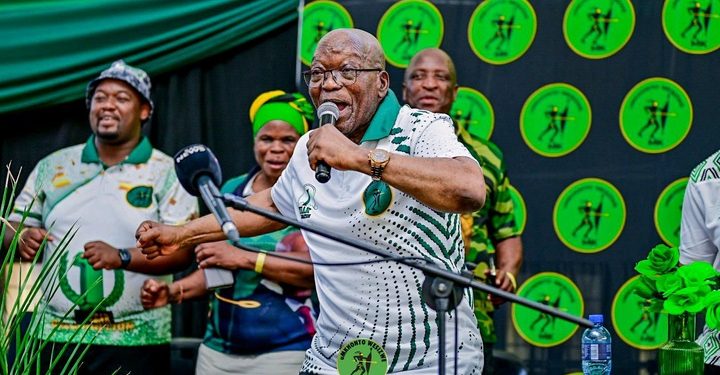The recent decision to grant parole to Janusz Walus, the convicted assassin of anti-apartheid leader Chris Hani, has ignited a firestorm of controversy across South Africa. Walus’s release, coupled with his deportation, has been met with fierce criticism, particularly from the uMkhonto weSizwe Party, which has condemned the move as a betrayal of justice and a dishonor to Hani’s legacy.
Describing the decision as an affront to South Africans seeking accountability for apartheid-era atrocities, the party has taken aim at the judiciary, accusing unelected judges of undermining democratic principles. They argue that life-altering decisions like this should reflect the will of the people and be determined by elected representatives, not judicial elites. This incident, the party claims, underscores the pressing need for judicial reforms to strengthen parliamentary sovereignty.
Adding to their outrage, the uMkhonto weSizwe Party has criticized Walus for his failure to fully disclose the truth about Hani’s assassination, including the potential involvement of collaborators. This lack of transparency, they assert, denies the nation the justice and closure it deserves. The party has also accused the government of prioritizing expediency over meaningful accountability, suggesting that Walus’s deportation exacerbates the pain of Hani’s family and the broader public.
[MEDIA STATEMENT]: STATEMENT ON JANUSZ WALUS. pic.twitter.com/RYHzYVcwth
— uMkhonto WeSizwe Party (Official) (@MkhontoweSizwex) December 9, 2024
In a scathing critique of President Cyril Ramaphosa’s administration, the party accused him of aligning with white monopoly capital and betraying the ideals of liberation leaders like Hani. They also expressed dismay over Ramaphosa’s cooperation with the Democratic Alliance in coalition governance, claiming it perpetuates the marginalization of black South Africans.
The party has called for an expedited inquest to uncover the full extent of the conspiracy behind Hani’s assassination, insisting that many collaborators remain shielded from justice.
The controversy over Walus’s parole has also drawn criticism from other political quarters. An Economic Freedom Fighters (EFF) member pointed out the perceived inconsistency in addressing apartheid-era crimes, highlighting former President Jacob Zuma’s decision to release apartheid operative Eugene de Kock and allegedly provide him financial support.
The debate over Walus’s parole has reopened deep wounds from South Africa’s apartheid history, highlighting unresolved tensions between justice, accountability, and reconciliation. While the uMkhonto weSizwe Party’s calls for systemic reform reflect widespread frustration, the broader challenge of balancing justice with national unity remains a persistent and divisive issue in South Africa’s transitional justice process.






















